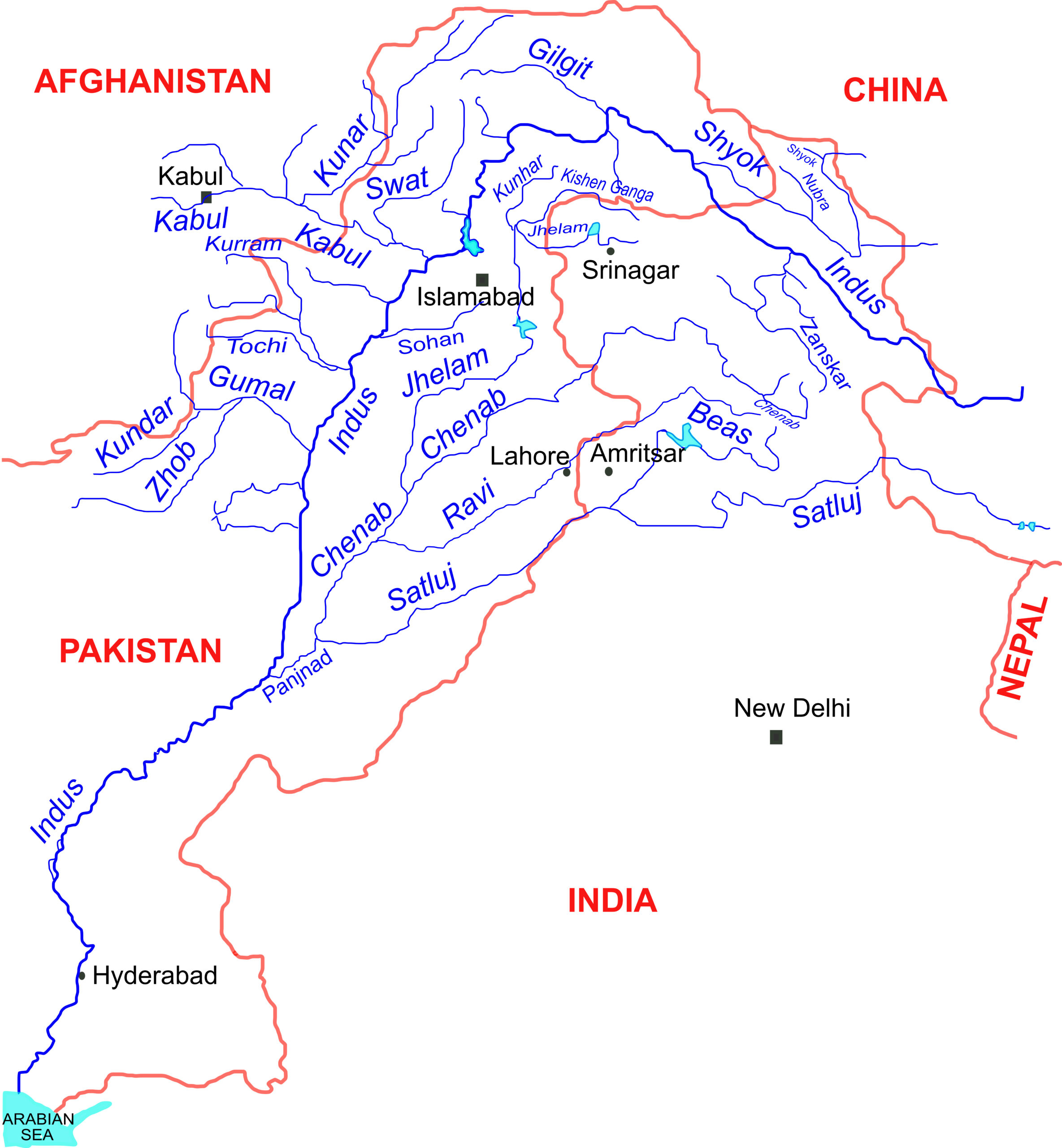India recently issued a formal notice to Pakistan on August 30, 2024, to discuss possible updates to the Indus Waters Treaty (IWT). This treaty, signed in 1960, governs how India and Pakistan share the water from the Indus River system. India’s notice reflects its concerns about the increasing need to manage water sustainably to support its population, agriculture, and energy goals. India believes it’s time to modify the treaty to address these needs as well as issues like cross-border terrorism, which it says is affecting its ability to fully use the water rights outlined in the treaty.
To read more about the Indus Waters Treaty, Visit– https://www.mea.gov.in/bilateral-documents.htm?dtl/6439/Indus
The Indus Waters Treaty splits the control of the Indus River and its tributaries: India manages the eastern rivers (Ravi, Beas, and Sutlej), while Pakistan has rights to the western rivers (Indus, Jhelum, and Chenab). India, as the “upper riparian” (the country upstream), wants to use water from the western rivers for projects like hydropower, while Pakistan, downstream, prioritizes the uninterrupted flow of water for its agricultural and domestic needs. This difference in interpretation often leads to disputes between the two countries over water usage and rights.
In 2013, the Permanent Court of Arbitration (PCA) allowed India to build the Kishanganga hydropower project, one of 33 projects India has planned along the western rivers. The PCA supported India’s right to generate power but required India to maintain a minimum flow of water to Pakistan. This compromise has highlighted the challenges of balancing India’s right to utilize the rivers for energy and Pakistan’s right to access sufficient water downstream.
One of the challenges the Indus Waters Treaty faces is that it treats the eastern and western rivers separately, which makes it harder to manage the entire water system of the Indus Basin. This separation has limited cooperation and doesn’t allow for a unified water management approach that could better address both countries’ needs, especially in light of climate change. With global warming, glaciers feeding the Indus are shrinking, which could significantly reduce the river’s flow by up to 40%. This raises concerns for both nations, as a decrease in water availability would impact agriculture, energy, and other critical sectors.
The treaty requires both countries to avoid causing significant harm to each other’s water usage. This principle of “no harm,” also recognized in international law, suggests that when either country plans a project with potential cross-border effects, it should conduct an Environmental Impact Assessment (EIA). While the IWT itself doesn’t specify this rule, it’s considered a part of international expectations for shared watercourses.
Updating the treaty will be difficult, as trust between India and Pakistan has been fragile. However, the Indus Waters Treaty does offer some pathways for the two countries to work together on specific issues as they arise. Article VII, for example, allows joint engineering projects, which could be an opportunity for both nations to work on managing water resources more effectively and address challenges like climate-related water variability.
In short, India’s recent request for treaty modifications aims to address modern needs for water use, power generation, and resource management. Although both countries approach water use differently, India and Pakistan could potentially find common ground in addressing climate change impacts and improving cooperation on shared water resources.
.
.
.
…join our telegram channel for regular updates of The Hindu Epaper Editorial Explanation-https://t.me/Thehindueditorialexplanation
The Hindu Epaper Editorial Explanation given by Hello Student is only a supplementary reading to the original article to make things easier for the students.
In conclusion, preparing for exams in India can be a daunting task, but with the right strategies and resources, success is within reach. Remember, consistent study habits, effective time management, and a positive mindset are key to overcoming any academic challenge. Utilize the tips and techniques shared in this post to enhance your preparation and boost your confidence. Stay focused, stay motivated, and don’t forget to take care of your well-being. With dedication and perseverance, you can achieve your academic goals and pave the way for a bright future. Good luck!
The Editorial Page of The Hindu is an essential reading for all the students aspiring for UPSC, SSC, PCS, Judiciary etc or any other competitive government exams.
This may also be useful for exams like CUET UG and CUET PG, GATE, GMAT, GRE AND CAT
To read this article in Hindi –https://bhaarat.hellostudent.co.in/

